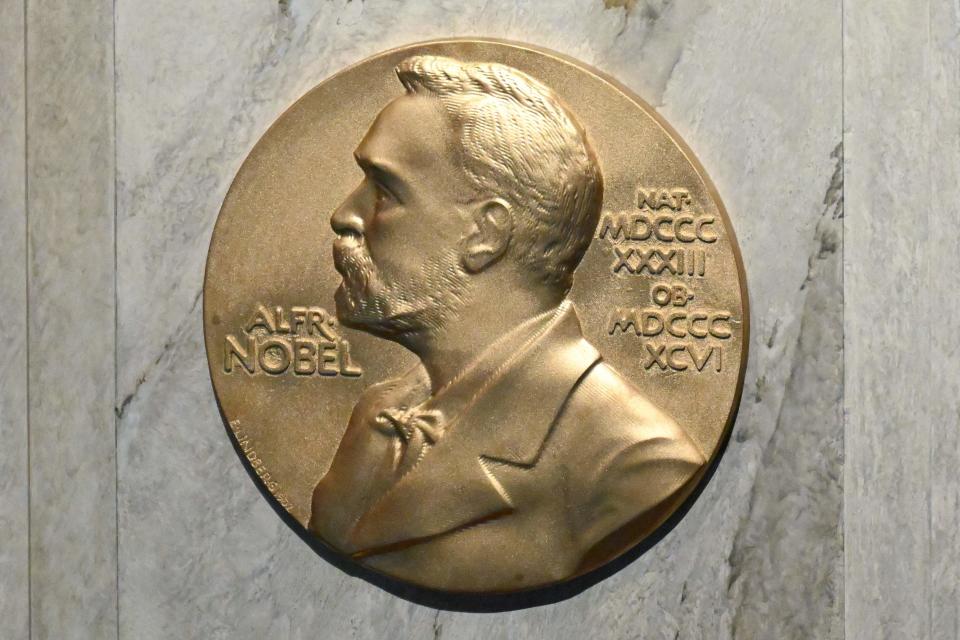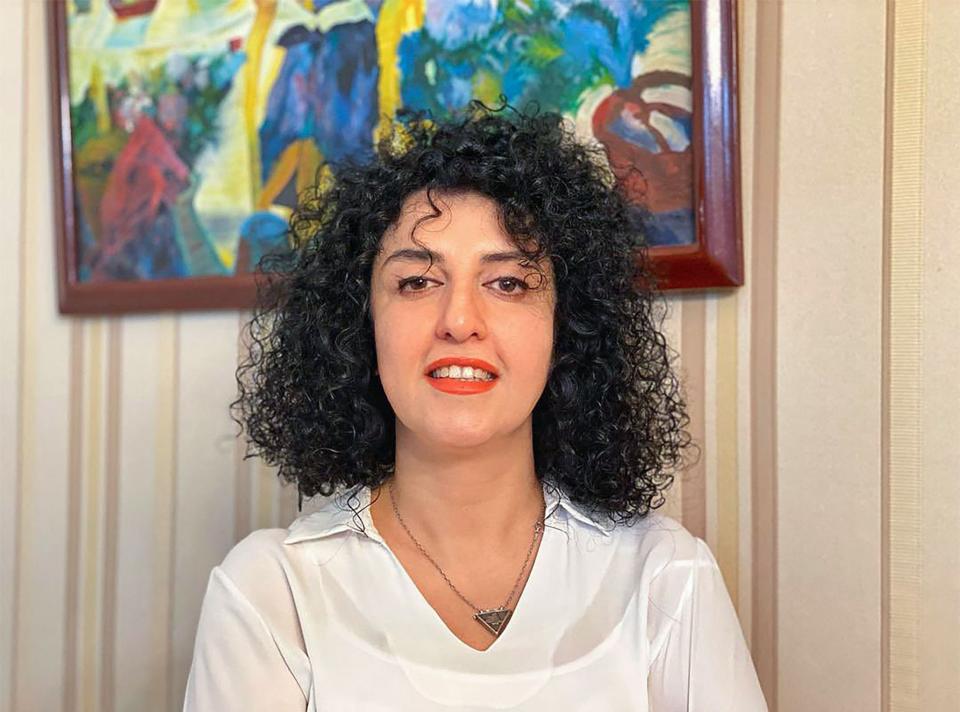'Woman, life, liberty': Iran rights activist Narges Mohammadi wins Nobel Peace Prize
- Oops!Something went wrong.Please try again later.
- Oops!Something went wrong.Please try again later.
- Oops!Something went wrong.Please try again later.
Imprisoned Iranian human rights activist Narges Mohammadi won the 2023 Nobel Peace Prize, the Norwegian awarding committee announced Friday in Oslo.
The committee said Mohammadi, 51, who has been in and out of prison for the last decade and is currently serving a 10-year jail sentence on false charges of "spreading propaganda," won for "her fight against the oppression of women in Iran and her fight to promote human rights and freedom for all."
Mohammadi was awarded the annual prize as Iran's clerical authorities continue a violent crack down on how women in Iran behave and dress, triggering mass protests. The motto of the protests has been "Woman, life, liberty," a phrase the committee mentioned in its announcement.
'Woman, life, liberty': Iranians on why they'll risk beatings and death for change
"She fights for women against systematic discrimination and oppression," Berit Reiss-Andersen, the chair of the committee, said. She described Mohammadi as the "undisputed leader" of a "whole movement."
In recent days, human rights groups have urged Iranian authorities to explain how a 16-year-old girl named Armita Geravand fell into a coma after an alleged encounter on a train with Iran's so-called morality police − evoking comparisons with Mahsa Amini, a 22-year-old women who died in police custody last year after being accused of violating Iran’s hijab rules, which require women to cover their hair. After Amini's death, Iran passed a new "hijab and chastity" law that comes with fines and lengthy prison terms for breaking it.
Iranian state news agency Fars dismissed the significance of the peace prize, saying that Mohammadi had "received the prize from Westerners" and that she was jailed because of her "acts against national security."
Who is Nobel Peace Prize winner Narges Mohammadi?
Mohammadi has been imprisoned almost continuously since 2010, though she has managed despite those circumstances to continue her work highlighting rights abuses in Iran.
Her husband and children live in exile in France.
She is the vice president of Defenders of Human Rights Center in Iran, a banned organization in Iran that was co-founded by Shirin Ebadi, another peace prize recipient − Iran's first, and the first female laureate from the Islamic world − in 2003. Ebadi is a human rights lawyer and Mohammadi's mentor.
Mohammadi is being held at Tehran's notorious Evin Prison, known for overcrowding and other abusive conditions and whose inmates include political prisoners and those with Western ties, including several Americans who were recently freed as part of a prisoner exchange with Iran.
Americans freed from Iran: Here are their stories
She has been a target of Iranian authorities for more than 25 years. Reiss-Andersen said she has been imprisoned 13 times and convicted five times. In total, she has been sentenced to 31 years in prison.
Her most recent incarceration began when she was detained in 2021 after attending a memorial for a person killed in nationwide 2019 protests in Iran that were initially sparked by an increase in gasoline prices.
They have different causes and aims: But mass protests from Iran to Hong Kong accelerate
In 2022 Mohammadi published a book, White Torture, whose title is a reference to types of psychological torture such as sleep deprivation and solitary confinement that Iranian prisoners face.
The book collects the testimonies of women prisoners in Iran, none of whom she says appear to have committed crimes, who experience harassment, beatings by guards, blindfolding and denial of medical treatment.
"They will put me in jail again," she wrote in the book.
"But I will not stop campaigning until human rights and justice prevail in my country."
The Nobel Peace Prize: 'a tribute to her courage'
The last two years saw the peace prize established by the Swedish inventor, chemist, businessman and philanthropist Alfred Nobel in 1901, who made his fortune inventing dynamite and other explosives, go to human rights activists in Belarus, the Philippines, Russia and Ukraine.
"We live in a very interconnected world. Right now, people in Iran are fighting for freedom. Our future depends on their success," Oleksandra Matviichuck, the head of Ukraine's Center for Civil Liberties, which won the prize last year, wrote on X, formerly Twitter, after Friday's announcement.
PEN America, which advocates for freedom of speech and earlier this year gave Mohammadi its prestigious PEN/Barbey Freedom to Write Award, welcomed her win.
"(It's) a tribute to her courage and that of countless women and girls who have poured out into the streets of Iran and faced down one of the world’s most brutal and stubborn regimes, risking their lives to demand their rights," PEN America CEO Suzanne Nossel said in a statement.

Jon Fosse: Norwegian author wins Nobel Prize in Literature for 'innovative plays and prose'
The peace prize has been awarded 104 times to 141 laureates between 1901 and 2023 − 111 individuals and 30 organizations. The Norwegian Nobel Committee awards Nobel Prizes each year in six different categories: physics, chemistry, physiology or science, literature, peace and economic sciences.
Quantum dots: Three U.S. scientists awarded Nobel Prize in Chemistry
Ohio State scientist: among three researchers awarded Nobel Prize in Physics
Nineteen of the peace prize recipients have been women. The youngest laureate was 17: the female education activist from Pakistan Malala Yousafzai, in 2014. The oldest peace laureate was Joseph Rotblat, 87, a nuclear physicist who won in 1995 for his efforts to "diminish the part played by nuclear arms in international politics."

This article originally appeared on USA TODAY: Nobel Peace Prize won by Iran human rights activist Narges Mohammadi

